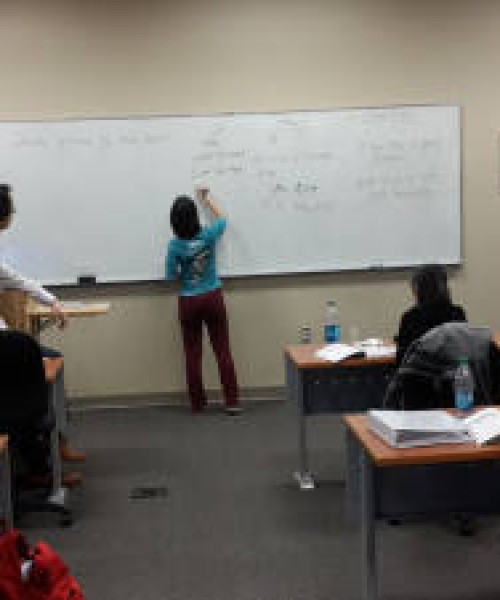Human existence has centered on the development of oral traditions and over the years, spoken language as a tool of communication has gained our importance. However, with the vast amount of information growing around, reading as a skill and the ability to read for different purposes has gained great importance.
Reading is an indispensable skill and as a means of communication, it is as important as speaking. More than simply using any reading material as a tool for constructing knowledge, it is importance to know how it is used. The students have to be trained to learn with the texts- a process via which students interact with the texts as they build their own meaning and knowledge.
Education of a child is incomplete unless he/she is equipped with the ability to read, to decipher, to interpret and to understand properly the content of a reading material. The intellectual advancement of a child is strictly limited, if he/she is unable to read (Yadov, 2002.45). Reading plays a crucial role in language learning/teaching because of its ability to feed one's existing knowledge in different ways.
Definitions of Reading
Reading is a complex skill and conscious activity using the writers' symbols meaning and ideas are obtained. However, the readers background knowledge is necessary for complete understand of a text.
Reading is the process of constructing meaning from written texts. It is a complex skill requiring the coordination of a number of interrelated sources of information. (Anderson et al., 1985).
Reading is the process of constructing meaning through the dynamic interaction among: (i) the reader's existing knowledge; (ii) the information suggested by the text being read; and (iii) the context of the reading situation (Wixson, Peters, Weber & Roeber, 1987).
Reading is a complex process by which a reader reconstructs, to some degree, a message encoded by a writer in a graphic language (Goodman, 1970).
From the above definitions, it is clear that reading is a tool. It is comprehensible, interpreting and applying textual material.
Importance of Reading
People read for different reasons and purposes. Reading is about the reader's attempt to discover what the writer has produced and showcased in his or her text.
Reading is perceived as a way to improve one's mind and thinking. Texts can instruct, inform, entertain, motivate and inspire.
Widdowson (1979) says that "reading is the process of getting linguistic information "via print' through reading; the information conveyed by the writer through the print medium is retrieved by the reader." Written text not only provides linguistic meaning but also contextual meaning. Linguistic meaning involves represented information and this is called literal. Contextual includes the socio-cultural and intentional meaning incorporated in the text. The efficient reader can only retrieve both his/her literal and pragmatic meanings from a text.
Psycho linguists and sociolinguists views of Reading
Reading activity includes perception, recognition, association, understanding, organization and finding meaning in the text. So the process of reading is complex in nature and related to mental ability of the reader. Hence, reading is a psycholinguistic process. It starts with a linguistic representation encoded by a writer and ends up with meaning, which a reader constructs. Thus, it is an interaction between the language and thought. The writer encodes thought in the form of language through the words.
According to sociolinguists' views, the experience of the reader, interest and efforts play a role in decoding process. When a reader starts to read, he feels comfortable, and he/she easily understands the meaning.
The Reading Process
Reading is a complex cognitive process of decoding symbols in order to construct or derive meaning. It is a means of language acquisition, of communication, and of sharing information and ideas. It is a process of constructing meaning from written texts. It is a complex skill requiring critical and creative thinking processes to pull together a number of interrelated sources of information.
Reading is a transactive process in which readers negotiate meaning or interpretation. During reading, the meaning does not go from the page to the reader; instead, it is a complex negotiation between the text and the reader that is shaped by the immediate situational context and broader socio linguistic contexts (Weave, 1988). The immediate situational context includes the reader's knowledge about the topic, the reader's purpose for reading, and other factors related to the situation.
Bottom up and Top down Processing in Reading
In the case of reading, as with other cognitive process, Psychologists have distinguished two kinds of processing. They are bottom up and top down processes. Bottom up processes are those that take in stimuli from the outside world-letters and words, for reading and deal with that information a little recourse to higher level knowledge. With top down processes, on the other hand, the update of information is guided by an individual's prior knowledge and expectations. Teriman (2001) says that in most situations bottom up and down processes work together to ensure the accurate and rapid processing of information.
Reading and Reading Skill
In the process of reading, the reader employs his/her reading skill. The degree of reading skill varies from person to person according to the linguistic competence and background knowledge he/she possesses.
Reading Comprehension
Reading comprehension is the act of understanding what one is reading. It is incredibly complex and multifaceted. Reading comprehension is an intentional, active, interactive process that occurs before, during and after a person reads a particular piece of writing. Reading is not only a cognitive psycholinguistic activity but also a social activity. In the process of reading comprehension, the printed words are not just decoded as they are, but decoded by a reader using his linguistic competence, socio linguistic and existing knowledge about the topic.
Effective Reading
A successful reader is a person who can handle large amount of written material; the following are the characteristics of a successful or effective reader Berg, (1971.78). A reader is one who
has purpose
can concentrate
comprehend what he/she reads
has a good vocabulary, and
can read rapidly, but with rate depending on the material.
Poor Reading
One's reading capacity normally fails due to his/her inability of recognizing words and deducing its meaning. Apart from word recognition, the knowledge about the writer's subject matter also controls the reading ability of the reader. Berg (1971. 5 - 7) says that the following are the causes of poor reading habits:
Lack of effective techniques
Lack of effective practice
Insufficient background
Technical details which demand a slower reading and
Visual problems.
Teaching / Learning Reading
They cannot become an effective or fluent reader as soon as he / she enter into the school. The desire and ability to learn to read grow out of a child's initial curiosity about how to write letters and words. Consequently, the child has to pass through several stages to become an effective reader. Generally the stages of learning of reading are categorized into three stages. At the first stage, the learner learns to read the alphabetic orders ABC upto XYZ. Then in the second stage, he/she learns to read its combinations (like h.e, s.h.e). In the third stage, the learner learns to read the words and its combinations with other words in a sentence and understand their meaning. In the fourth stage he/she extends his/her reading ability at the sentence level. In the fifth stage, he/she begins to comprehend the discourses. Only at this stage, they use both linguistic and socio linguistic knowledge for complete understanding of the text.
Testing Reading Comprehension
As we know, the reading act itself stands at the very core of any learning process; test is given for the reading comprehension ability. The items include incomplete sentences, tabular, narrative, passage, word and telegraphic form.
Broadly two types of questions are asked. They are text based questions and knowledge or competence based questions. Text based questions expected from the students' answers of different types:
Selection of appropriate words from the given answers.
Deciding whether the statements given are true or false.
Framing the questions from the given text.
Knowledge based questions required the subject to recognize the parts of the sentences, to complete the incomplete sentences and recalling vocabularies and grammatical information from their memory.
Conclusion
The benefits of effective reading are manifold. It is important for teachers to reinforce this skill every day. Reading skill is not confined to the English class, but it is a skill that every human being needs in his/her real life. The learners need to achieve both academic goals and attain self-fulfillment as members of a society where the capacity to read is fundamental standard of social integration.










